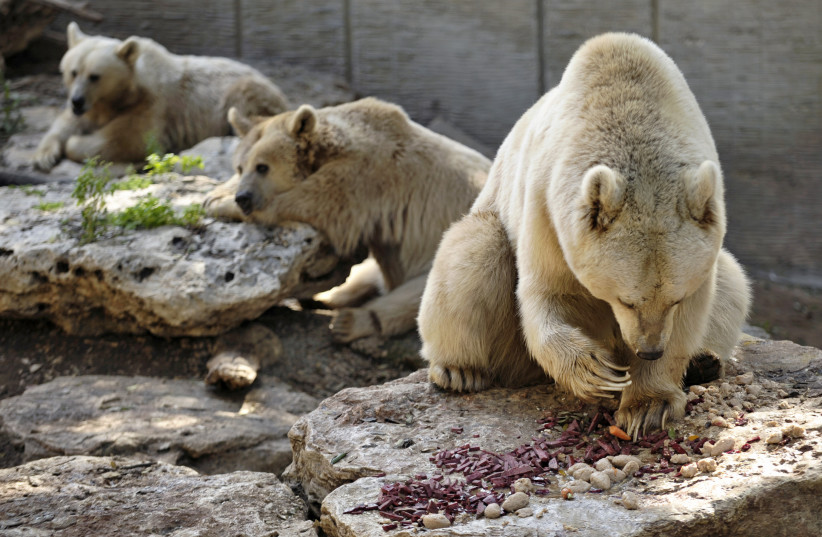A new leopard arrived at the Safari Ramat Gan as part of a program carried out in partnership between the safari and the Organisation of European Zoos aiming to preserve the species and create a nucleus for its future reproduction. The new inhabitant is a Persian leopard and like all new arrivals, she brought a lot of excitement with her.
She came to Israel on an El Al flight
The new two-year-old leopard came to Ramat Gan from Beauval Zoo in France on an El Al flight and now lives in her own enclosure. Soon she will get to meet Cyrus, the five-and-a-half-year-old Persian leopard who has been at the Safari for four years.
The process of them getting to know each other will be slow and complex. At first, they will live in separate enclosures but close enough to smell each other. After getting used to one another and if they seem to want to meet, they will be able to share an enclosure under the probing eyes of their keepers.
"Every arrival of a new animal to the Safari is very exciting for us," said the vice mayor of Ramat Gan and Chairman of the Board of the Safari, Roi Barzilai. "The leopard's enclosure was built with contributions and support of the municipality according to specifications from European Zoos, which requires separate enclosures for males, females and cubs. The leopard is in the section for animals from the land of Israel, opposite the bears' enclosure which was recently built with a big investment as well. We will keep investing in order to upgrade and improve the Safari for the animals."
In danger of extinction
The Persian leopard as a subspecies is categorized as in danger of extinction. Its biggest population lives in Iran, while a number of other populations are scattered in neighboring countries, mainly in the north and in the Caucasus regions. The reproduction project which the new leopard is part of will enable the reintroduction of Persian leopards into the wild.

The goal is to get to a population of 200 Persian leopards in European Zoos, a part of which can then be freed in the wild. Therefore a lot of expectations are resting on the new pair of leopards. By 2020, only around 20 leopards were freed in the Caucasus region.
Apart from fears about their survival, the leopards are the only super predators left in this region, which is why they are especially important to the stability of this ecosystem. According to the safari's zoologist Keren Or, "the leopard is one of the five biggest cats in the panther family and the largest distribution. They live in wide regions of Africa and Asia, the Arabian peninsula and the Middle East. In the past, leopards lived in Israel's nature as well. There was the Arabian leopard, which lived in Ein Gedi and the Negev Mountains and the Anatolian leopard which lived in northern Israel."
What will be her name?
The safari stated that "the leopard was intended to come here from the moment she was born and the preparations for her arrival took two years. In order to make her adaptation to the new home easier on her, her keepers trained her in English and not in French, so the team in the safari will be able to communicate with her."
Now they are looking for an Israeli name for her. If you have ideas or suggestions, you can send them to the safari's Facebook page.
